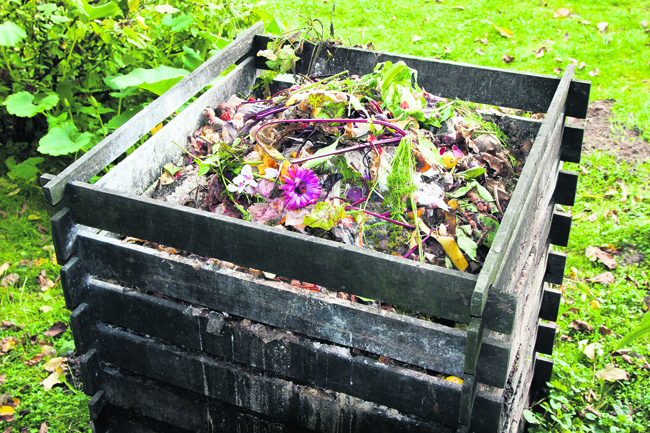By now we have all read and heard of eco-friendly lifestyles and chances are most of us have rejected the idea as well. On the first glance, many find it to be an overwhelmingly ambitious notion. The abstract idea of altering our day to day activities for what many find to be a larger than life cause like ‘saving the environment’ sounds like a big inconvenience. Only the fact is it really isn’t.
The Week brings you a reminder of how a great place to start the so-called overwhelming task of reducing one’s waste is actually within the comfort of our own home. It all begins with being less wasteful and more aware of your energy consumption.
 Tip #1: Numerous websites offer tips on how to reduce energy consumption and greenhouse gas emissions but don’t underestimate the little changes like for instance, not leaving your chargers plugged in. This is another small way to reduce your energy consumption – phone chargers and laptop leads constantly left in the socket will continue to use a small amount of electricity, completely unnecessarily. Take a second to pull them out.
Tip #1: Numerous websites offer tips on how to reduce energy consumption and greenhouse gas emissions but don’t underestimate the little changes like for instance, not leaving your chargers plugged in. This is another small way to reduce your energy consumption – phone chargers and laptop leads constantly left in the socket will continue to use a small amount of electricity, completely unnecessarily. Take a second to pull them out.
Youth Speak Forum to focus on SDGs

Tip #2: Similarly, invest in rechargeable batteries and a battery charger. Think about it, every time you throw away old batteries you are contributing to soil and water pollution. Batteries are obviously made from a variety of chemicals to power their reactions. Some of these chemicals, such as nickel and cadmium, are known to be extremely toxic and can cause damage to humans, environment and, the wildlife – problems that you can help reduce by simply purchasing rechargeable batteries. You can run almost anything, from flashlights to digital cameras, with rechargeable batteries. In the long run, it is cheaper and better for the environment.
Tip #3: Again, we repeat, the changes you make to your lifestyle don’t necessarily have to be big ones. You can play your part to promote recycling in many ways. Perhaps you are even right now. Do you still follow your mum’s ways and reuse leftover jam and Horlicks jar for food storage? Well, it is one simple but effective way to reduce your waste. Collect and use leftover glass jars as food storage containers. They are more durable than plastic bags, leak less, reduce odors in the refrigerator, and keep moths out of dry goods in the cupboard. Best of all, you will be practicing reuse!
Tip #4: Speaking of plastic, you can also stop buying plastic water bottles. Water bottles or even plastic tea and coffee cups are huge wastes of material. In their place, you can make the decision to buy a durable water bottle or a cute coffee thermos so you can take your beverages wherever you please. You’ll find yourself feeling a lot more hydrated and a lot less wasteful.
 Tip #5: There has also been a lot of talk of ditching the plastic bags in our town. Well, are you complying? After all, it is all about making conscious efforts to play our part. You can’t deny, one of the simplest ways to decrease the amount of waste you produce is to use reusable bags while shopping. Instead of relying on your supermarket’s plastic bags, simply bring your own cloth ones to pack up your items and tote them home. Many people do it these days but many more still don’t. Thus it is worth a reminder. Keep your reusable tote in the trunk of your car, your daily handbags or right by the door. It is an easy way to make sure you don’t forget them at home.
Tip #5: There has also been a lot of talk of ditching the plastic bags in our town. Well, are you complying? After all, it is all about making conscious efforts to play our part. You can’t deny, one of the simplest ways to decrease the amount of waste you produce is to use reusable bags while shopping. Instead of relying on your supermarket’s plastic bags, simply bring your own cloth ones to pack up your items and tote them home. Many people do it these days but many more still don’t. Thus it is worth a reminder. Keep your reusable tote in the trunk of your car, your daily handbags or right by the door. It is an easy way to make sure you don’t forget them at home.
Tip #6: Make a meal plan. In addition to material waste, food waste is a huge problem in many households. Remember that morning curry that you had to throw away the next morning because it had gone bad? It’s entirely preventable if the consumer follows one simple rule: only cooking the portions that you know you and your family will eat. It sounds like a no-brainer, but you’d be surprised at how much food is regularly thrown into the garbage.
Tip #7: This also nicely brings us to another simple yet incredibly effective way to reduce our day to day waste, start composting. As we know, every day, a large amount of what you throw into the trash could be composted and returned to the earth. If you have a bin and some extra space, you can easily start a compost that you could feed back into your garden. Really it is as simple as that. Your excess food won’t go to waste, your garden will be full of nutrients and you can feel better about your impact on the planet. It’s a win on all accounts.
***Unless you live a zero-waste lifestyle, there is always room for improvement when it comes to taking care of the planet. We can’t stress enough how these little changes such as switching to cloth bags instead of plastic ones or making a concerted effort to use compact florescent bulbs, switching off our gadgets when not used or even donating your old things can help. So choose to make an effort today.
And in any case, if you are looking for inspirations, do google Lauren Singer. She is known as ‘Zero Waste Girl’ because she managed to literally fit her two years worth of trash in a single mason jar. An environmental science student, Singer decided to design her lifestyle to try and produce as less waste as possible. She even did a Ted Talk on it. It certainly makes you more conscious. How much rubbish do you throw away each day?





































